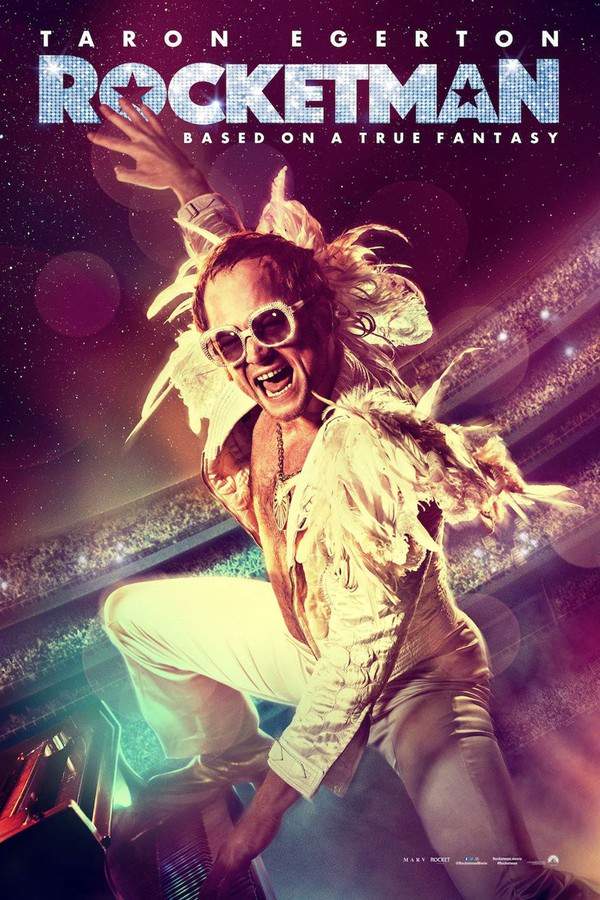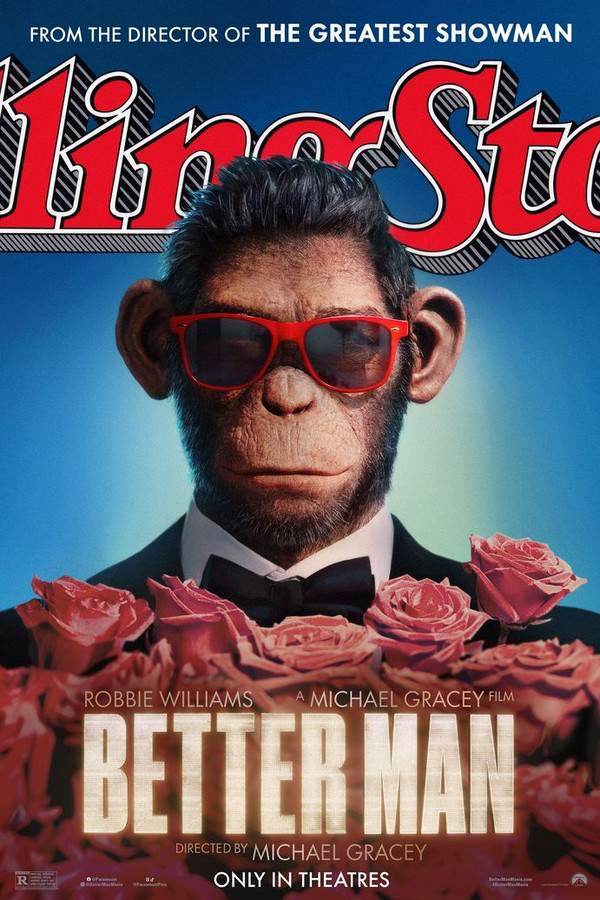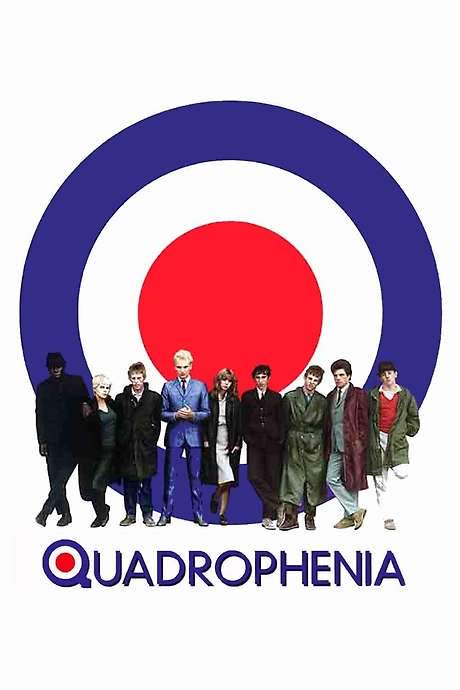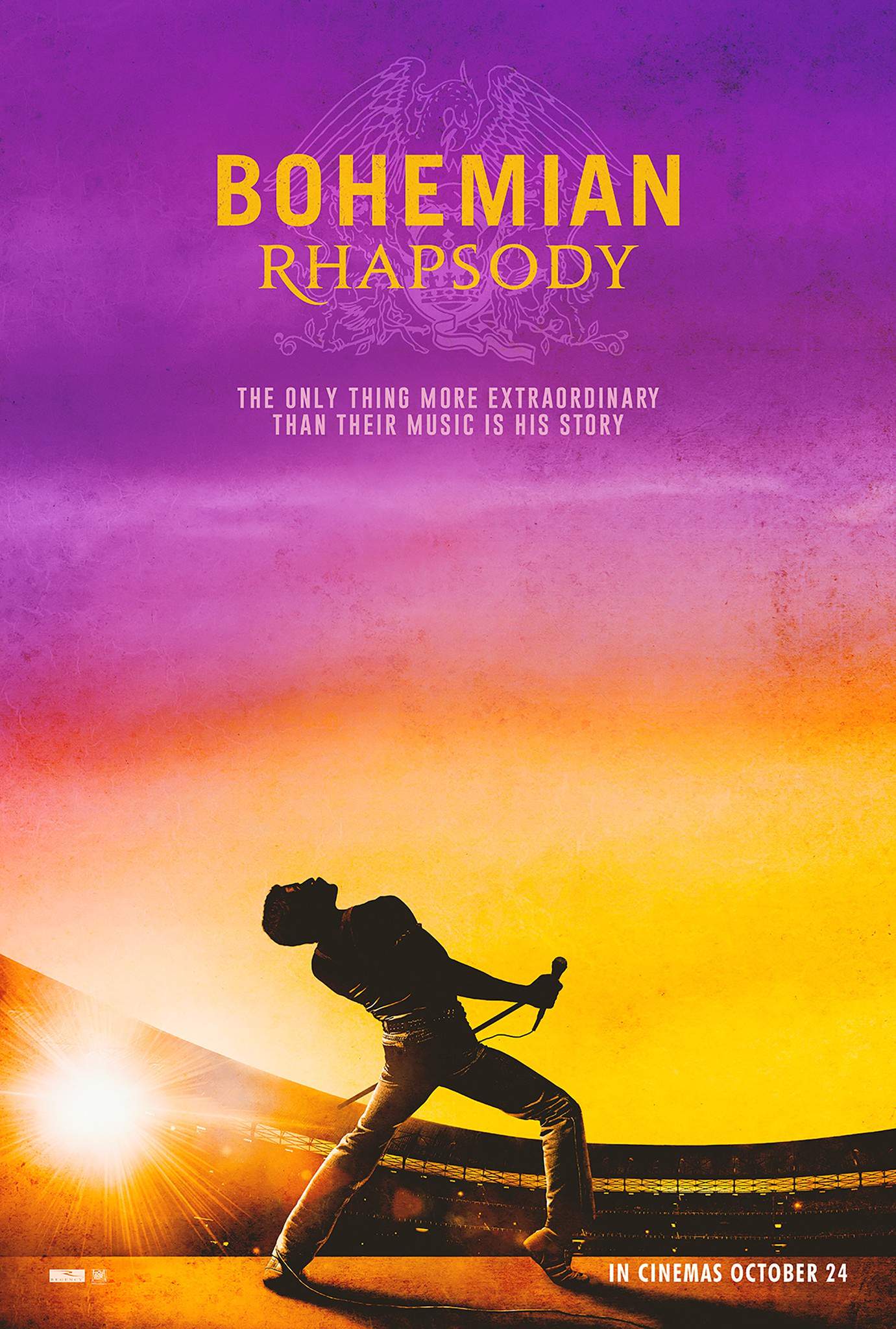
Bohemian Rhapsody 2018
Directed by
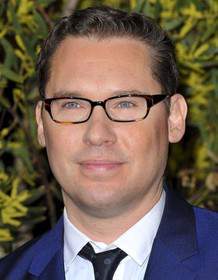
Bryan Singer
Test your knowledge of Bohemian Rhapsody with our quiz!
Bohemian Rhapsody Plot Summary
Read the complete plot summary and ending explained for Bohemian Rhapsody (2018). From turning points to emotional moments, uncover what really happened and why it matters.
In 1970, Freddie Farrokh Bulsara, portrayed by Rami Malek, is an Indian-British Parsi who juggles his time studying art in London and working as a baggage handler at Heathrow Airport. In the evenings, he often frequents local music venues with friends. One fateful night, after a pub show, Freddie encounters the band Smile and is captivated by an attractive young woman named Mary Austin in the hallway. She directs him to the band and reveals that she works at a trendy boutique, Biba. Complimenting the performance to drummer Roger Taylor and guitarist Brian May, he eagerly offers himself as a replacement after their lead singer, Tim Staffell, departs, showcasing his impressive vocal talent in the process.
Freddie soon visits Biba again and finds himself assisted by Mary while shopping, where they bond and ultimately become a couple, moving in together. With Freddie as the new lead singer, and joined by bassist John Deacon, the band starts performing throughout Britain, quickly gaining popularity by selling out universities and pubs. Freddie’s vision pushes the band to grow, and they decide to record their debut album after selling their van to secure studio time. In the midst of recording, an A&R representative from EMI takes notice, prompting them to present demos.
Freddie takes the significant step of renaming the band to Queen and legally adopts the moniker Freddie Mercury. The group signs on with John Reid, Elton John’s manager, who assists them under his guidance, while Paul Prenter, his assistant, manages day-to-day operations. Their appearance on Top of the Pops catapults them to fame with the hit record Killer Queen. As the duo’s relationship deepens, Freddie and Mary become engaged.
Their debut album rises on American charts, but amidst their bustling U.S. tour, Freddie starts grappling with his sexuality. In 1975, while working on their acclaimed fourth album, A Night at the Opera, tensions arise as executive Ray Foster resists releasing the now-iconic six-minute song, Bohemian Rhapsody, as the lead single. Freddie takes the bold step of having DJ Kenny Everett premiere the track on the airwaves, and despite mixed reviews, it ultimately becomes a massive hit. On the heels of their world tour, Freddie starts an affair with his manager Paul. This tumultuous time leads to Mary’s heartbreak as Freddie confides in her about his bisexuality, claiming she assures him of his identity.
Despite their continued success well into the early 1980s, cracks begin to form in the band due to Freddie’s evolving persona and the influence of his relationship with Paul. After a glamorous party in 1980, he meets Jim Hutton, a waiter who quickly captures his heart, only for their relationship to dissolve when Jim prompts Freddie to embrace self-acceptance. As their 1982 album, Hot Space, nears release, a press conference spirals as reporters bombard Freddie with invasive questions regarding his personal life, leading him to respond with sharp retorts. Meanwhile, John Reid proposes a solo deal with CBS, which doesn’t sit well with Freddie, ultimately leading to a fallout as he pleads for the integrity of the band. Compounding the turmoil, he learns that Mary is now involved with someone named David.
Freddie’s relationships with his band members deteriorate further when he announces a lucrative solo contract, prompting him to relocate to Munich in 1984 to pursue solo work on Mr. Bad Guy, which sees him enter a world of excess with Paul. After a visit from Mary, who is pregnant, she urges him to reconcile with the band as they prepare to play in Bob Geldof’s charitable concert, Live Aid, at Wembley Stadium. Confronted by the revelation that Paul withheld this information, Freddie’s outrage leads him to sever ties, only for Paul to retaliate with public disclosures about Freddie’s private life.
With remorse, Freddie returns to London to mend his fractured relationships with his bandmates and their manager Jim Beach. Their reunion comes just in time for a late slot at Live Aid. As the AIDS epidemic looms, Freddie receives the heartbreaking news of his own diagnosis. During a rehearsal, he shares his illness with the band, who rally around him. On the momentous day of Live Aid, Freddie reconnects with both Jim and Mary, and he embraces his family’s Zoroastrian philosophy, “Good thoughts, good words, good deeds.”
The band delivers a legendary performance, featuring classics like Bohemian Rhapsody, Radio Ga Ga, Hammer to Fall, and We Are the Champions, captivating the audience and significantly boosting donations during the event. The film culminates with a poignant note reflecting on Freddie Mercury’s passing on November 24, 1991, at the age of 45, and highlights the band’s tribute concert in his memory.
Bohemian Rhapsody Timeline
Follow the complete movie timeline of Bohemian Rhapsody (2018) with every major event in chronological order. Great for understanding complex plots and story progression.
Freddie's Early Life
In 1970, Freddie Farrokh Bulsara, an Indian-British Parsi, balances his art studies in London while working as a baggage handler at Heathrow Airport. His life is marked by a passionate pursuit of music during his evenings at local venues.
Encounter with Smile
Freddie attends a pub show where he meets the band Smile. He is instantly taken by Mary Austin, who introduces him to the band and shares her connection to the vibrant fashion scene at Biba.
Joining Queen
Following Tim Staffell's departure from the band, Freddie impresses the remaining members—Roger Taylor and Brian May—with his vocal talent, earning his place as the new lead singer. This marks the birth of what will become one of the most iconic bands in history.
Rise to Fame
With Freddie at the helm, Queen begins to perform throughout Britain, quickly garnering a following. Their shows sell out, and the band becomes known for their energetic performances and Freddie's captivating stage presence.
Recording Debut Album
In a bold move, the band sells their van to fund studio time for their debut album. They catch the attention of an A&R representative from EMI, who encourages them to share their demos.
Renaming to Queen
Freddie decides to rename the band to Queen and adopts the stage name Freddie Mercury. Under the guidance of their new manager John Reid, the band prepares to launch their music to a broader audience.
Hit Single Success
The band's performance on *Top of the Pops* thrusts them into the spotlight with the release of *Killer Queen*. This success marks a significant turn in their career, making them household names.
Struggles with Identity
As their fame grows, Freddie grapples with his sexuality amidst the pressures of success. His relationship with Mary Austin develops further, culminating in their engagement.
Bohemian Rhapsody Premiere
In 1975, while recording their fourth album, Freddie takes a risky decision to have DJ Kenny Everett air the now-famous track *Bohemian Rhapsody*. Despite initial skepticism from their record executive, the song ultimately becomes a cultural phenomenon.
A Personal Crisis
After a whirlwind tour, Freddie begins an affair with his manager Paul Prenter while revealing his bisexuality to Mary. This revelation strains their relationship, leading to heartbreak for Mary.
Solo Career Tensions
Tensions escalate within the band as Freddie announces a solo contract and plans to relocate to Munich. His pursuit of individual success leads to rifts with his bandmates, raising concerns about the future of Queen.
Live Aid Preparation
As Freddie prepares for the monumental *Live Aid* concert at Wembley Stadium, he receives a surprise visit from Mary. She urges him to reconcile with the band to make a triumphant return to the stage.
Legendary Live Aid Performance
On the day of *Live Aid*, Queen delivers a stellar performance that includes their greatest hits. This electrifying set not only captivates millions of viewers but also significantly boosts funds for famine relief in Ethiopia.
Health Crisis Revealed
Freddie's world takes a tragic turn as he learns of his AIDS diagnosis. He confides in his bandmates during a rehearsal, reinforcing their bond as they rally around him during this challenging time.
Freddie's Passing
The film concludes with the heart-wrenching news of Freddie Mercury's passing on November 24, 1991, at the age of 45. It culminates in a tribute concert celebrating his life and enduring legacy within the music world.
Bohemian Rhapsody Characters
Explore all characters from Bohemian Rhapsody (2018). Get detailed profiles with their roles, arcs, and key relationships explained.
Freddie Mercury
Freddie Mercury, portrayed by Rami Malek, is the charismatic and exuberant lead singer of Queen. He is driven by his passion for music but struggles with his identity and relationships, particularly with Mary Austin and Paul Prenter. His evolution as an artist is marked by both triumphs and tribulations.
Mary Austin
Mary Austin, played by Lucy Boynton, is Freddie Mercury's confidant and first love. Her unwavering support and deep affection for Freddie highlight the complexities of their relationship, especially as they navigate Freddie's changing identity and emotional turmoil.
Roger Taylor
Roger Taylor, portrayed by Ben Hardy, is the energetic drummer of Queen. He embodies both the band's spirit and the challenges of fame, balancing personal ambitions with the group's dynamics and Freddie's evolving persona.
Paul Prenter
Paul Prenter, played by Allen Leech, serves as Freddie's manager and romantic partner, introducing both passion and chaos into Freddie's life. His manipulative nature creates tension, showcasing the darker side of personal and professional relationships in the music business.
Jim Hutton
Jim Hutton, portrayed by Aaron McCusker, becomes Freddie's partner later in life, representing a turning point in Freddie's journey toward self-acceptance. His love challenges Freddie to confront his personal struggles and emphasizes the importance of unconditional support.
Bohemian Rhapsody Settings
Learn where and when Bohemian Rhapsody (2018) takes place. Explore the film’s settings, era, and how they shape the narrative.
Time period
1970s-1980s
The film takes place primarily during the 1970s and 1980s, a transformative period in music history marked by the rise of rock and pop bands. This era witnessed significant cultural shifts, including the exploration of personal identity and the impact of the AIDS epidemic.
Location
London, Wembley Stadium
London serves as a vibrant backdrop, known for its rich cultural scene and music venues, where Freddie Mercury's journey begins. Wembley Stadium, a historic concert venue, becomes the stage for the iconic *Live Aid* performance, representing music's power to unite and inspire.
Bohemian Rhapsody Themes
Discover the main themes in Bohemian Rhapsody (2018). Analyze the deeper meanings, emotional layers, and social commentary behind the film.
🎶
Music and Identity
Music serves as a powerful medium for self-expression and identity exploration in the film. Freddie's evolution as an artist illustrates the tensions between personal and public personas and how the music industry often shapes, but can also complicate, one's identity.
💔
Love and Heartbreak
The theme of love and heartbreak permeates the story, particularly in Freddie’s relationships with Mary Austin and Paul Prenter. It explores the complexities of love, loyalty, and the pain of rejection as Freddie navigates his sexuality and emotional connections.
🌈
Acceptance
Acceptance is a vital theme that evolves throughout the film, particularly as Freddie grapples with his bisexuality. The journey toward self-acceptance resonates profoundly, especially in the face of societal pressures and personal fears.

Coming soon on iOS and Android
The Plot Explained Mobile App
From blockbusters to hidden gems — dive into movie stories anytime, anywhere. Save your favorites, discover plots faster, and never miss a twist again.
Sign up to be the first to know when we launch. Your email stays private — always.
Bohemian Rhapsody Ending Explained
Unravel the ending of Bohemian Rhapsody (2018) with our detailed explanation. Understand the final scenes, character fates, and unresolved questions.
The film concludes with Queen’s legendary performance at Live Aid, which is recreated in minute detail, capturing the energy and emotion of that iconic moment. As the band plays to a massive stadium crowd, their performance becomes a symbol of triumph not just for Queen, but for Freddie Mercury himself, who, throughout the film, has grown from a self-centered performer into a more fulfilled and connected individual. Before this climax, Freddie faces significant personal challenges: he reconnects with his bandmates and asks for their forgiveness after realizing how much he needs them, especially after learning he has AIDS. The band, in turn, supports him wholeheartedly, reuniting to give him the confidence to perform at his best. Freddie also makes important strides in his personal life, reconnecting with his boyfriend Jim Hutton and healing strained family relationships by introducing Jim to his parents. These moments of reconciliation and acceptance lead up to the big finale, where Freddie, embodying a renewed sense of self, delivers a breathtaking show at Wembley Stadium that electrifies the audience. As the crowd erupts in applause, the film’s ending celebrates not only the power of music and legacy but also Freddie’s journey toward self-acceptance and love. The closing shot isn’t just about the performance; it’s a powerful reminder that, despite the pressures and personal struggles, Freddie Mercury’s spirit and music continue to resonate, leaving viewers with a sense of joy, catharsis, and the everlasting impact of Queen’s music. The movie ends on this triumphant high, embodying the enduring magic of rock and roll and the timeless appeal of Queen’s music.
Bohemian Rhapsody Spoiler-Free Summary
Discover the spoiler-free summary of Bohemian Rhapsody (2018). Get a concise overview without any spoilers.
In the vibrant, neon‑lit world of 1970s London, an ambitious young artist named Freddie discovers a restless energy that only music can tame. By day he studies art and works a modest job at the airport, but nights draw him to cramped clubs where raw talent and daring ambition collide. It is in one of these smoky venues that he first encounters a fledgling group of musicians yearning for a voice that can match their bold ideas. Drawn together by a shared desire to break conventions, they begin the alchemical process of turning rehearsals into anthems that echo far beyond the modest pubs where they first played.
Mary, a charismatic boutique employee with an eye for style, becomes an unexpected catalyst for Freddie’s transformation, offering both personal support and a glimpse into the world of fashion and performance that would soon shape the band’s image. The core of the group—Roger, Brian, and John—each brings a distinct personality and musical expertise, creating a dynamic chemistry that fuels both creative triumphs and inevitable tensions. Their collective vision pushes them to abandon comfortable routines, selling possessions to fund studio time and daring to fuse disparate genres into something unmistakably theirs.
The tone of the film balances the electrifying rush of live concerts with quieter, introspective moments that reveal the characters’ inner struggles. A blend of flamboyant stagecraft, heartfelt relationships, and the relentless pursuit of artistic perfection casts a glow over every scene, inviting viewers to feel the pulse of a band on the cusp of greatness. As the story unfolds, the audience is drawn into the intoxicating blend of fame, friendship, and self‑discovery that defines the early years of a musical legend, setting the stage for a journey that will reverberate through history.
Can’t find your movie? Request a summary here.
Movies with Similar Twists and Themes
Uncover films that echo the narrative beats, emotional arcs, or dramatic twists of the one you're exploring. These recommendations are handpicked based on story depth, thematic resonance, and spoiler-worthy moments — perfect for fans who crave more of the same intrigue.
Featured on this page

What's After the Movie?
Not sure whether to stay after the credits? Find out!
Explore Our Movie Platform
New Movie Releases (2025)
Famous Movie Actors
Top Film Production Studios
Movie Plot Summaries & Endings
Major Movie Awards & Winners
Best Concert Films & Music Documentaries
Movie Collections and Curated Lists
© 2025 What's After the Movie. All rights reserved.


